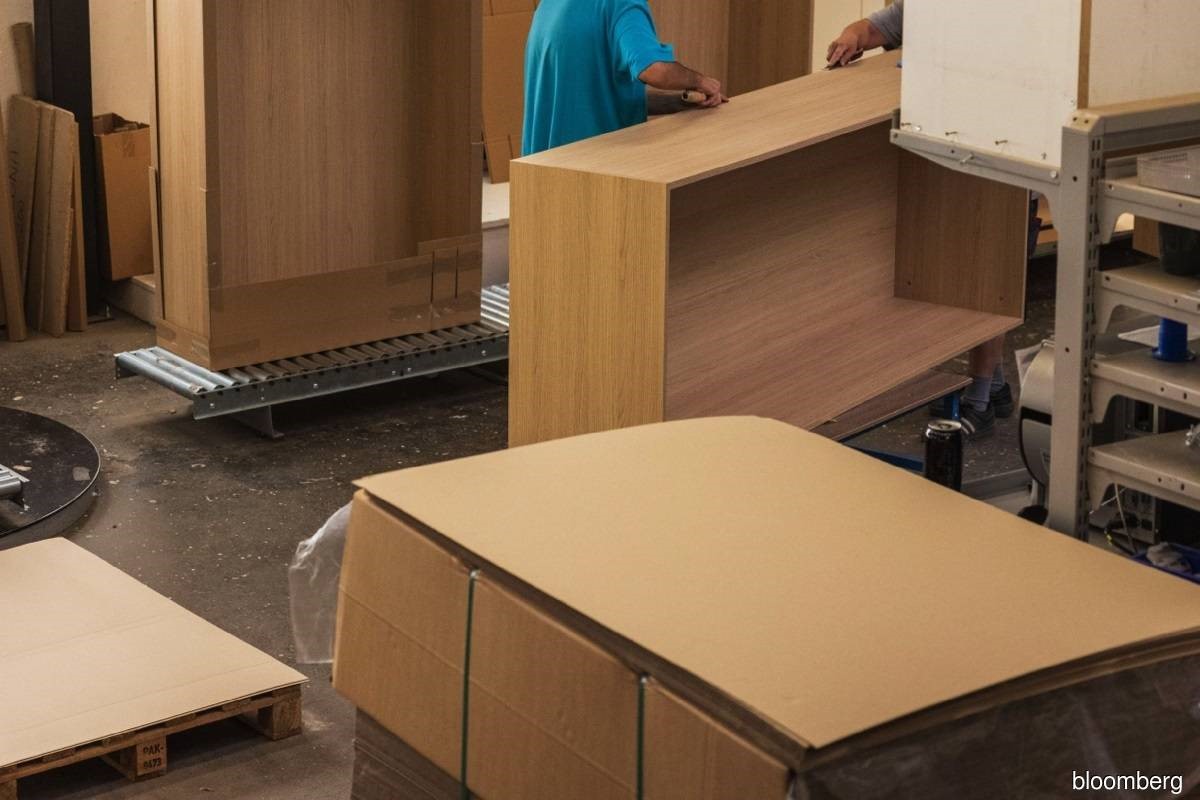Wood manufacturing sector's tailwinds dissipating amid tapering furniture demand, says HLIB Research
 The wood manufacturing sector's prospects appear to be dimming even with the easing in elevated raw material costs and supply chain issues, as the industry is facing yet another obstacle — slowing furniture demand.
The wood manufacturing sector's prospects appear to be dimming even with the easing in elevated raw material costs and supply chain issues, as the industry is facing yet another obstacle — slowing furniture demand.
即使原材料成本上涨和供应链问题有所缓解,木材制造业的前景似乎也变得暗淡,因为该行业正面临另一个障碍——家具需求放缓。
The declining US home sales, normalising pandemic trend as workers return to the office, coupled with increasing risk of a global economic downturn, are weighing furniture demand, said Hong Leong Investment Bank (HLIB) in a report on 6th January.
丰隆投资银行 (HLIB) 在1 月 6 日的一份报告中表示,美国房屋销售下滑、随着员工重返办公室而大流行趋势正常化,再加上全球经济下滑的风险增加,都在打压家具需求。
Among the top five export markets for Malaysian furniture in the first 10-month period last year, Singapore registered the largest year-on-year growth of 47.2% but the US remains the largest export market, making up 57.3% of total export value for the period, said the investment bank.
在去年首 10 个月大马家具的前 5 大出口市场中,新加坡的同比增幅最大,达 47.2%,但美国仍然是最大的出口市场,占总出口值的 57.3%。该投资银行表示。
However, it said existing US home sales have been declining amid rising mortgage rates, making it increasingly unaffordable for home buyers there.
然而,它表示,由于抵押贷款利率上升,美国现有房屋销售量一直在下降,这使得那里的购房者越来越难以负担。
“This would inevitably have a negative impact on Malaysian furniture makers given that the US is the largest export market,” it noted.
“鉴于美国是最大的出口市场,这将不可避免地对马来西亚家具制造商产生负面影响,”它指出。
As workers return to office post-pandemic, HLIB said consumers are expected to shift their spending from buying home goods, like new furniture, to travel and leisure as international borders have opened.
随着工人们在大流行后重返办公室,HLIB 表示,随着国际边界的开放,预计消费者将把他们的支出从购买新家具等家居用品转移到旅游和休闲。
Moreover, HLIB said the weakening of the US dollar against the ringgit is a bane for the wood manufacturing sector as most of its revenues are denominated in the greenback.
此外,HLIB表示,美元兑令吉走弱对木材制造业来说是个祸根,因为它的大部分收入都是以美元计价的。
“Should global furniture demand take a downturn as a result of economic slowdown while the ringgit continues to strengthen against the greenback, there might be further margin compression ahead for the wood manufacturing sector,” it said.
“如果全球家具需求因经济放缓而下滑,而令吉兑美元继续走强,木材制造业的利润率可能会进一步压缩,”它说。
Therefore, HLIB downgraded the sector to “neutral” from “overweight”, and expects panel board makers like Evergreen Fibreboard Bhd and Heveaboard Bhd to fare better than furniture makers like Lii Hen Industries Bhd and Homeritz Corp Bhd, as the US is not their main export market.
因此,HLIB 将该行业评级从“增持”下调至“中性”,并预计 Evergreen Fibreboard Bhd 和 Heveaboard Bhd 等板材制造商的表现优于 Lii Hen Industries Bhd 和 Homeritz Corp Bhd 等家具制造商,因为美国不是他们的主要市场出口市场。
Evergreen's operations in Thailand and Indonesia cater to the Middle East and Indonesian markets respectively, while Heveaboard's main export market is Japan, said HLIB.
HLIB表示,Evergreen在泰国和印度尼西亚的业务分别迎合中东和印度尼西亚市场,而亿维亚的主要出口市场是日本。
“These markets are expected to be more resilient compared to the US market and as such, the panel board makers should fare better than the furniture makers as they would not be significantly impacted should there be an economic recession in the US,” it said.
“与美国市场相比,这些市场预计将更具弹性,因此,面板制造商的表现应该好于家具制造商,因为如果美国经济衰退,它们不会受到重大影响,”它说。
